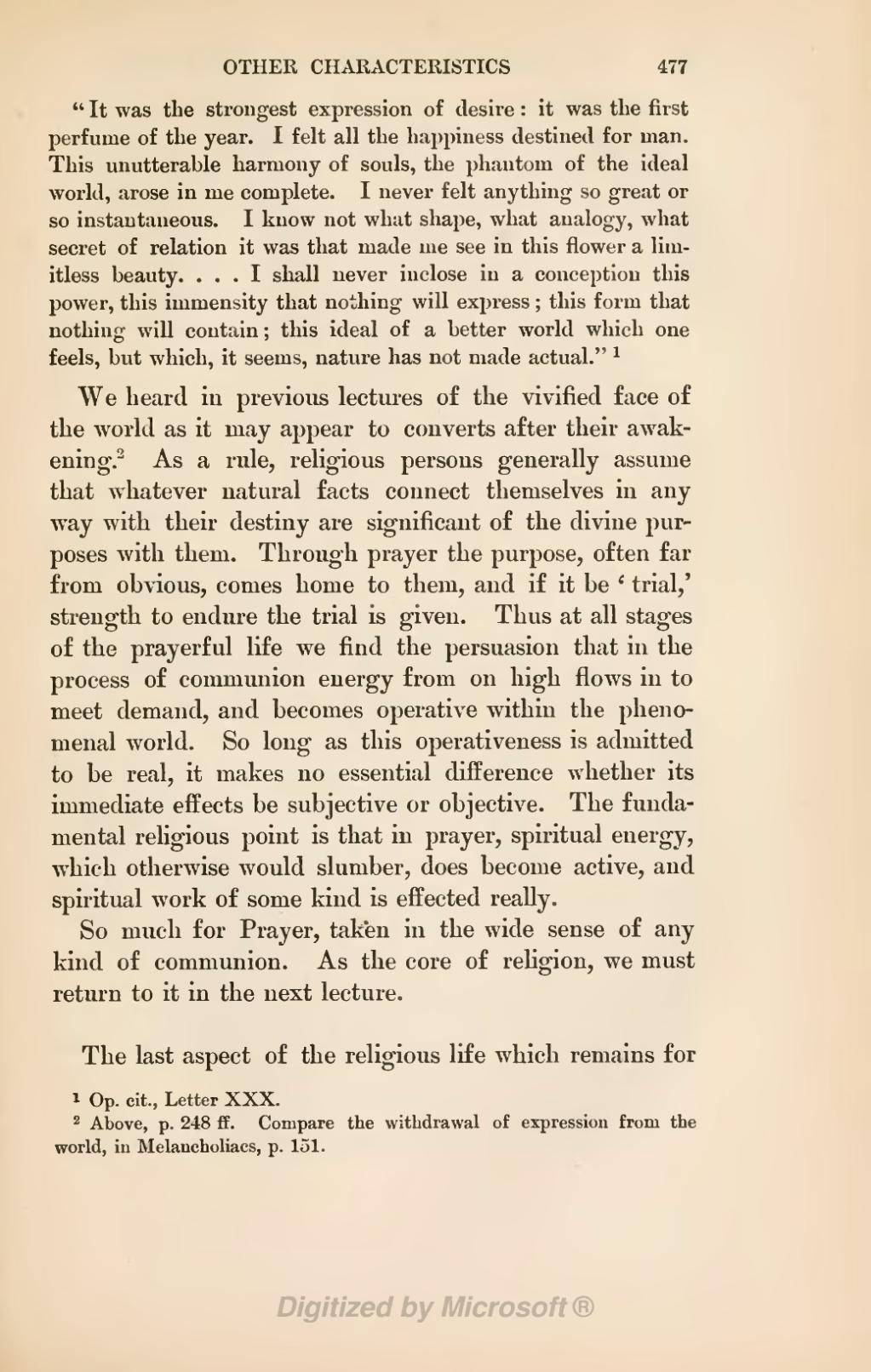"It was the strongest expression of desire: it was the first perfume of the year. I felt all the happiness destined for man. This unutterable harmony of souls, the phantom of the ideal world, arose in me complete. I never felt anything so great or so instantaneous. I know not what shape, what analogy, what secret of relation it was that made me see in this flower a limitless beauty. … I shall never inclose in a conception this power, this immensity that nothing will express; this form that nothing will contain; this ideal of a better world which one feels, but which, it seems, nature has not made actual."[1]
We heard in previous lectures of the vivified face of the world as it may appear to converts after their awakening.[2] As a rule, religious persons generally assume that whatever natural facts connect themselves in any way with their destiny are significant of the divine purposes with them. Through prayer the purpose, often far from obvious, comes home to them, and if it be 'trial,' strength to endure the trial is given. Thus at all stages of the prayerful life we find the persuasion that in the process of communion energy from on high flows in to meet demand, and becomes operative within the phenomenal world. So long as this operativeness is admitted to be real, it makes no essential difference whether its immediate effects be subjective or objective. The fundamental religious point is that in prayer, spiritual energy, which otherwise would slumber, does become active, and spiritual work of some kind is effected really.
So much for Prayer, taken in the wide sense of any kind of communion. As the core of religion, we must return to it in the next lecture.
The last aspect of the religious life which remains for

